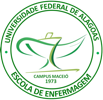History
In 1973, the Hospital Ship HOPE remained in Maceió for approximately nine months. The organization and efficiency with which it assisted the Alagoas community had a significant impact. For the first time, the work of a team comprised specifically of nurses stood out. This is believed to have been one of the factors that contributed to the awakening of the importance of nursing professionals, whose absence began to be complained about in the hospital environment. Another factor was the realization of the enormous shortage of nurses at the national, regional, and local levels. At that time, the state of Alagoas had a "nursing assistant school."
Thus, in 1974, the Undergraduate Course in Nursing and 10 other courses were created, with this justification: The Federal University of Alagoas, incorporating the initiative of the Ministry of Education and Culture regarding the expansion and integration of education in the country's development process, programmed and created new courses, which, integrated with the existing ones, aimed to meet the socio-economic demands of the State.
The program was authorized to operate in November 1973, at a meeting of the UFAL Teaching and Research Council. Immediately afterward, the Nursing Studies Sector was created, linked to the Department of Internal Medicine, under the leadership of Professor Osvaldo Brandão Vilela. Given the circumstances, the rector appointed Professor Vera Lúcia Ferreira da Rocha (in memoriam) as the first coordinator of the Nursing Program.
The first entrance exam took place in January 1974, with 111 candidates applying for 40 spots. 38 female candidates and two male candidates were accepted. After its creation, the UFAL Nursing Program established its first faculty. During its first years of operation, the group of nursing professors, from various Brazilian states, sought support from various political and social bodies in Alagoas to raise awareness of the nursing profession and the impact of its work.
Just as in undergraduate programs, social and political commitment is present in graduate programs, both lato and stricto sensu. The specializations offered seek to respond to the demands of the Unified Health System (SUS) and social health needs, with the most consistent program being the specialization in Obstetric Nursing.
The Postgraduate Program in Nursing (Stricto sensu) - Master's in Nursing - PPGEnf follows the legislation of the Foundation Coordination for the Improvement of Higher Education Personnel (CAPES) and the regulatory provisions of the Pro-Rectorate of Research and Postgraduate Studies (PROPEP) of UFAL and was created on March 22, 2011. In the first evaluation of the area in the biennium (2011-2012) it maintained this concept and in the four-year evaluation of CAPES (2013-2016) it obtained Concept Note 4, with significant advances in the 5 evaluation items, even with limiting factors related to infrastructure.
